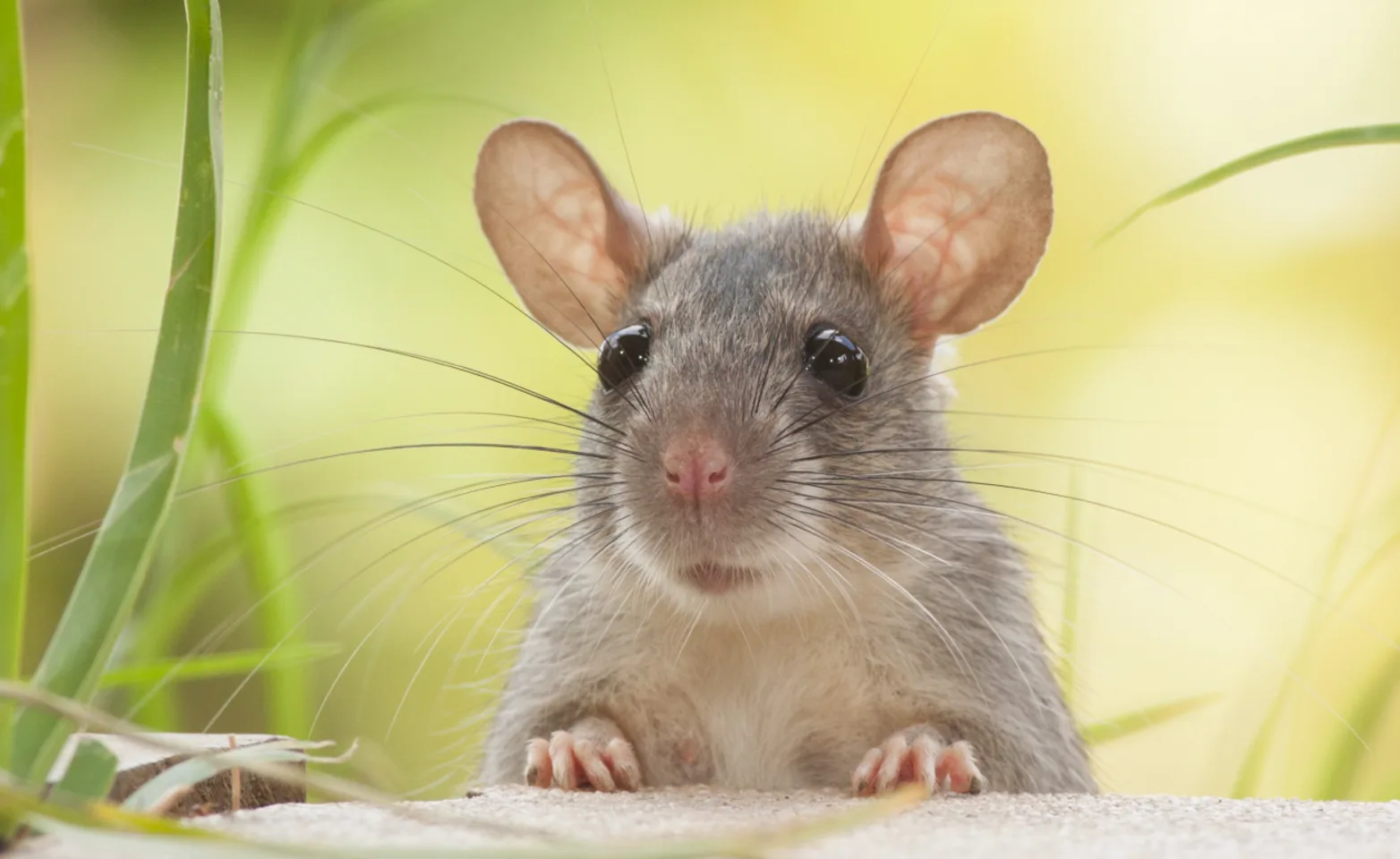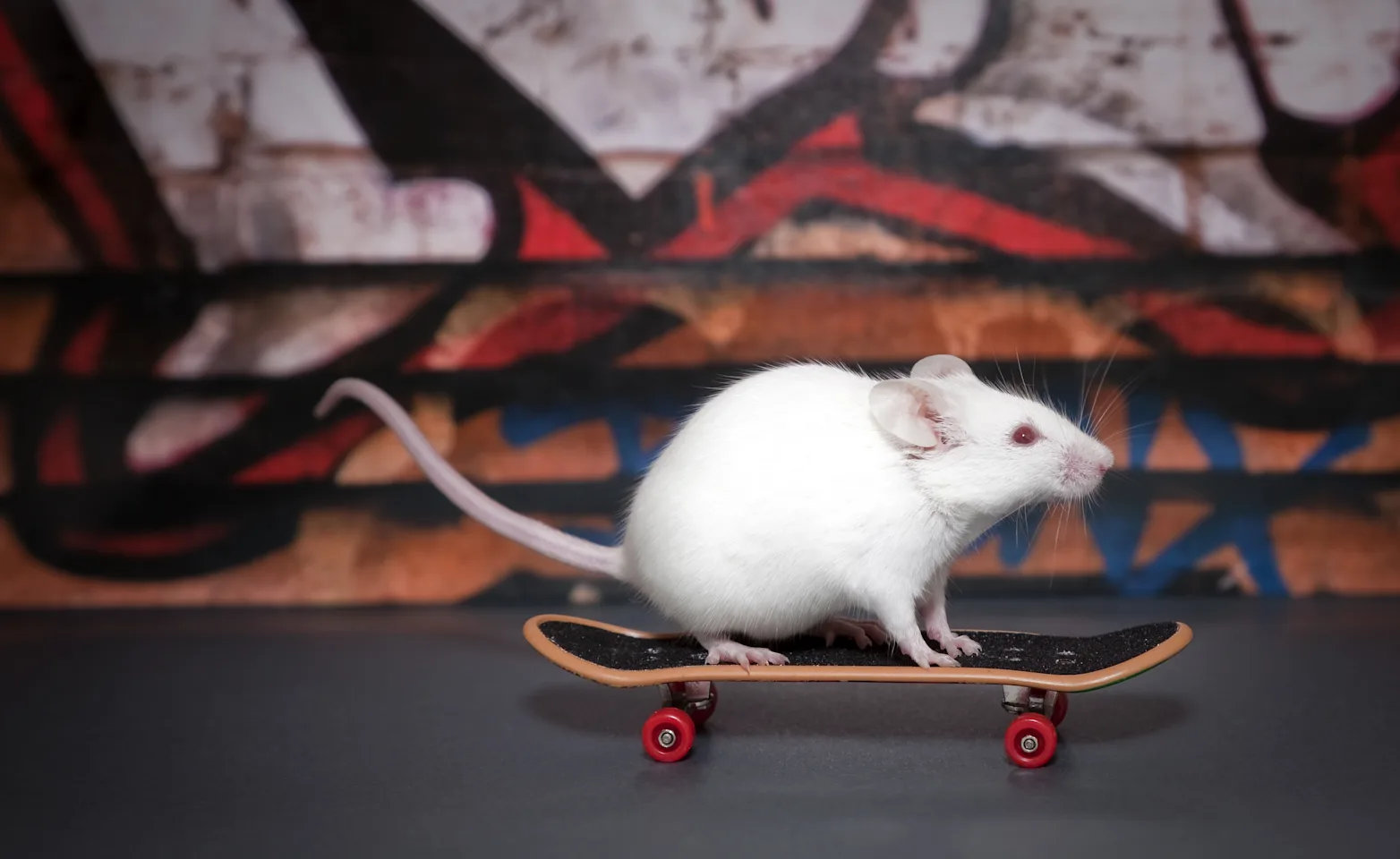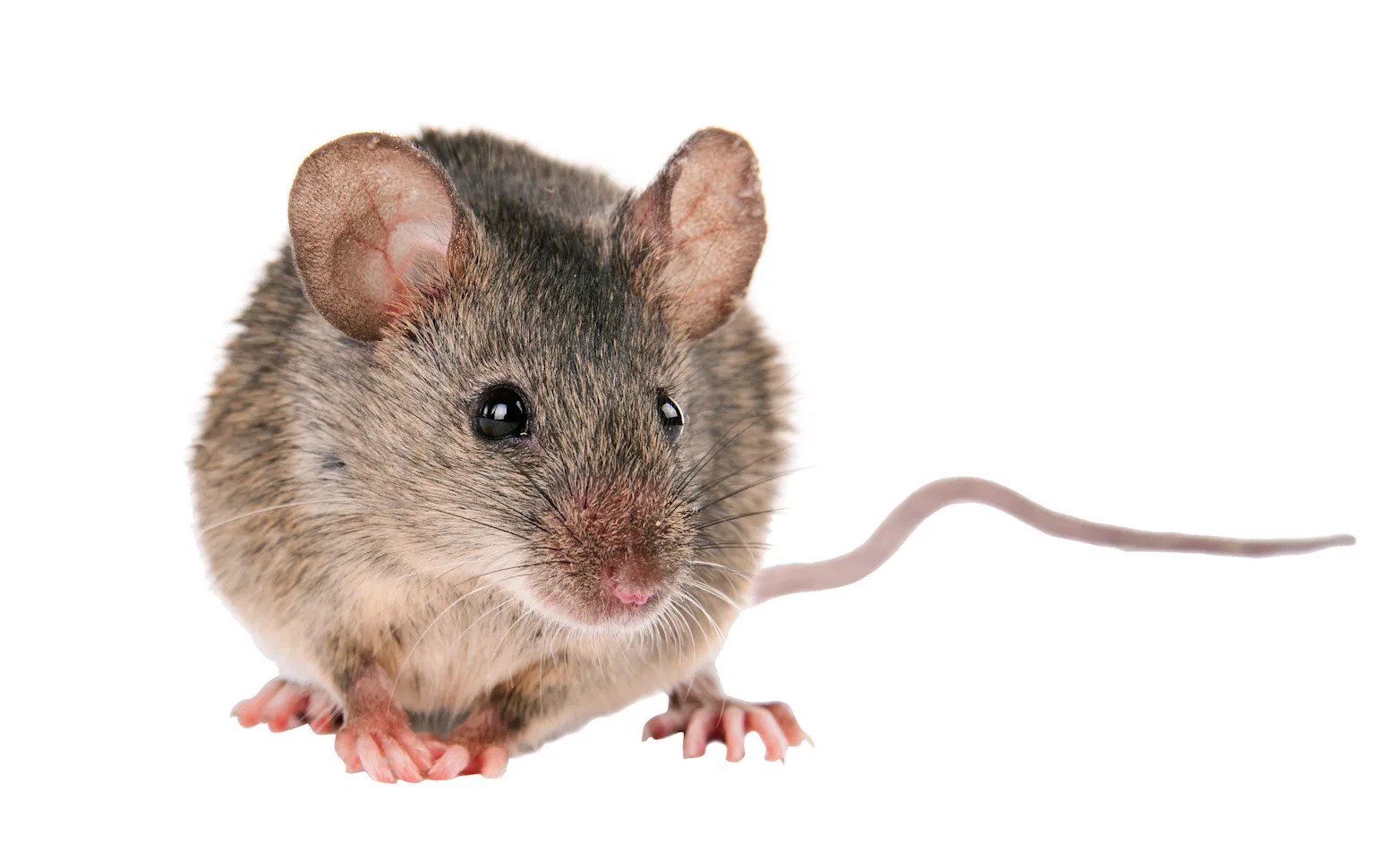Warren Woods Veterinary Hospital

Rat: Basic Care and Husbandry
Rats are long tailed rodent found in many places all over the world. They range in weight from 250-450 grams for females and 450-650 grams for males and can reach a length of 9-11 inches excluding the tail. Their average lifespan is 2-3 years. They are nocturnal meaning that they are most active during the night. Rats come in a variety of fur types and colors and can have normal or dumbo ears. Their long tails serve to help with balance and coordination and play a vital role in maintaining body temperature since rats cannot sweat.
Rats are normally very sweet, intelligent, curious pets. They are very social and prefer to housed in same sex pairs or small groups. Since rats are so clever they can easily become bored and making time to socialize your rat is very important. They enjoy time outside of their cage and being carried around with you on your shoulder or in your sweater. They are very intelligent and with patience can be taught to do a variety of tricks and even use a litter box. Typically, male rats tend to be more lazy and docile, while females tend to be more curious and playful.
Rats are clean animals and typically do not need to be bathed or have their toenails trimmed. Your rat should never be picked up by the tail, this can cause the skin the slough off and is painful and damaging to soft tissue of the of tail. If absolutely necessary to grab your rat by the tail be sure to grab at the base of the tail closest to the body. Scooping your rat under its belly with two hands is the preferred handling method.

The ideal cage for a pair of rats is a solid bottom cage minimally 2 x 2 x 2-foot with wire sides for ventilation. The bedding in the bottom of your cage should be made of a recycled paper product or shredded newspapers. Litters made of wood shaving may be irritating to the rat’s mucus membranes, skin and respiratory tract. Wood shavings may also be contaminated with pesticides or parasites. The cage should be cleaned with a mild soap as needed, at least once weekly.
Rats get bored very quickly if not provided proper enrichment, toys are a great way to keep your rat entertained and happy. Acceptable toys can be homemade or purchased Warren Woods Veterinary Hospital 29157 Schoenherr Road Warren MI 48088 Telephone: 586-751-3350 Fax: 586-751-3447 www.wwvhcares.com from your local pet store, these may include cardboard boxes, toilet paper rolls, wood chews, hammocks, tubes, tunnels, plastic toys and some bird toys. Always monitor that your rat is not ingesting any parts of the toys. A rat’s teeth are constantly growing, however, the natural alignment of their teeth when chewing and grinding keeps them at a proper, healthy length. Rats also enjoy running on a solid bottom exercise wheel. A hide house should be present and can also be purchased from your local pet store.
Rats are omnivores and eat a variety of foods. Rat blocks or Oxbow Adult Rat Food purchased from your local pet store are nutritionally fortified rat diets and should be the majority of your rat’s diet. Your rat’s diet should consist of 70-80% carbohydrates, 12- 20% protein and 4-6% fat. Seed mixes do not have all the nutrients needed and are very fattening to your rat; seed offered should only be a very small portion of your rat’s daily diet. Your rat can enjoy most of the foods you eat in moderation. Offering fresh fruits, vegetables, noodles, breads and unsweetened cereals are a great way to add some variety to your rat’s diet. Commercial rat treats however are fattening and should be offered in small amounts. Avoid sudden or drastic changes to the diet as this may lead to diarrhea.
Unsafe foods for rats include chocolate, coffee and carbonated beverages (they cannot burp), avocado, blue cheese, green bananas, licorice, peanut butter and other sticky foods (this can cause them to choke), raw sweet potato, raw red cabbage, raw artichokes, raw beans and peanuts, rhubarb, soy milk and wild insects. Orange juice and mangos are not safe in males (they contain D-Limonene, a hydrocarbon which is linked to renal cancer).

Normal tap water is safe for you rat. Water can be offered in a water bottle or dish, its ideal to provide both a water bottle and dish until you are positive your young rat is successfully drinking from the bottle. The water source should be cleaned daily to prevent the growth of bacteria.
Spaying or neutering your rat has many health benefits and is recommended. Spaying a female will greatly reduce her risk of getting ovarian or mammary tumors which are some of the most common causes of death in female rats. Neutering a male eliminates the risk of testicular cancer and in some cases, reduces aggression. Spaying and neutering will also eliminate any unwanted litters. Rats become sexually mature at just 5 weeks of age and have a gestation period of around 21 days.
To keep your rat happy and healthy he or she should see a qualified exotic veterinarian every six to twelve months for their annual checkup. Some diseases and health issues that may affect your rat include upper respiratory disease, tumors, congestive heart failure, bumblefoot, mites, lice, fleas, diabetes and ear infections.
